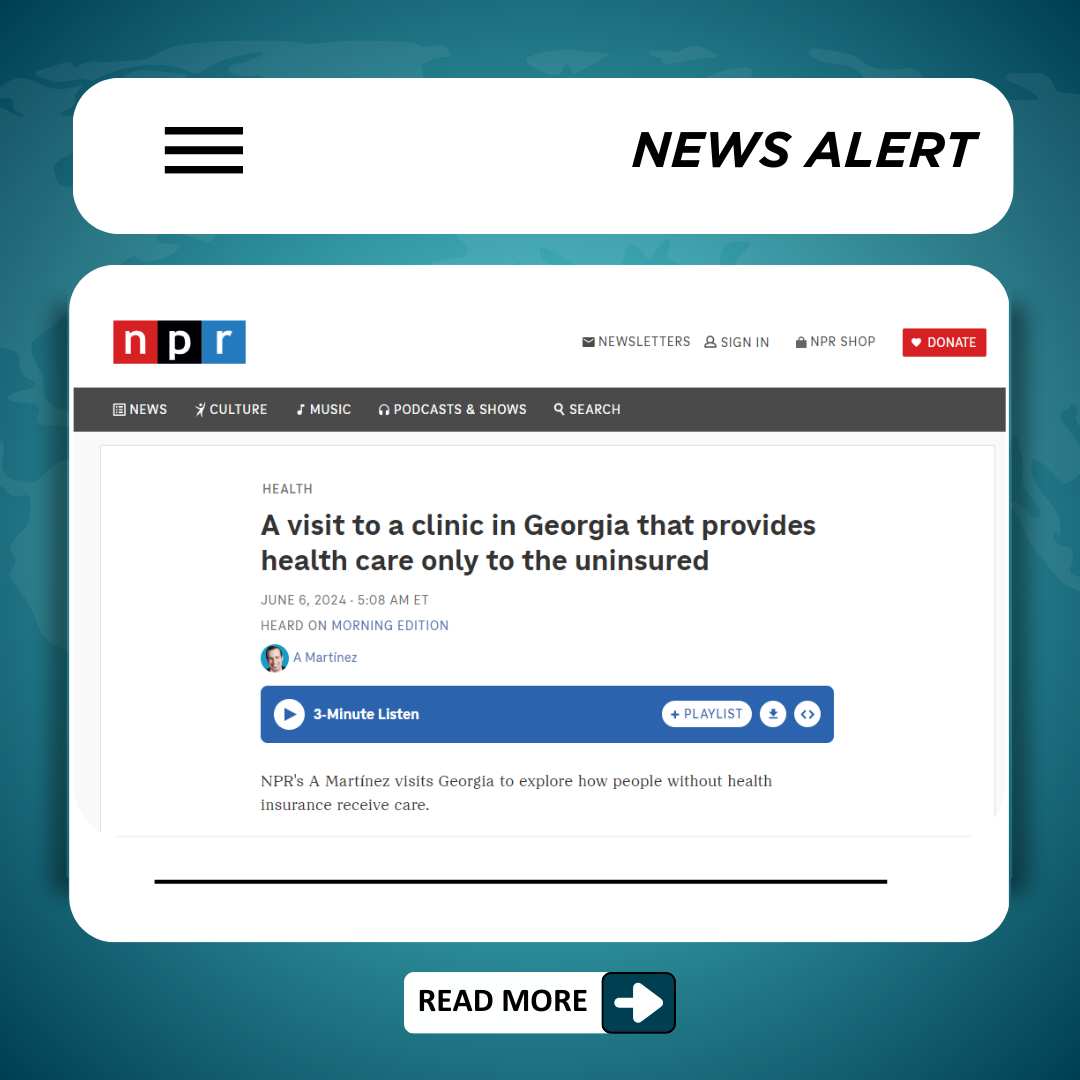
NPR Morning Edition: A Visit to a Clinic in Georgia That Provides Health Care Only to the Uninsured
HEARD ON NPR MORNING EDITION
JUNE 6, 2024 | By A Martínez
Good Samaritan Health Centers of Gwinnett was featured on NPR’s Morning Edition in a story by A Martínez. The segment highlighted Good Samaritan Gwinnett’s mission to provide primary healthcare and dental services to the uninsured. We extend our gratitude to A Martínez and the NPR team for visiting our clinic, meeting our patients, and speaking with our dedicated team members.
You can listen to the full segment here: https://n.pr/3VsDD9u
Read the full interview transcript below:
(00:00):
How do you get healthcare if you don’t have insurance? Well, that’s a question fewer Americans are having to answer than ever before. Less than 8% are uninsured. Now that there’s record enrollment under the Affordable Care Act, it still means millions of people without coverage, though something we wanted to explore as part of our We the Voters Series focusing on healthcare. So, we traveled to Georgia and visited a clinic that serves only the uninsured.
(00:27):
We’re met at the Good Samaritan Clinic by Greg Lang. He’s the Chief Financial Officer here and he tells us about Gwinnett County, where the clinic sits.
(00:36):
Our public high schools often report 90 different languages spoken among their student body. The most significant thing that we do is that we serve undocumented people without question.
(00:49):
For some of these patients, this might be the first time they have ever seen a doctor or received any kind of medical care.
(00:56):
We’ve seen measles in this clinic. We’ve seen whooping cough, we’ve had malaria, we’ve even had leprosy in our clinics.
(01:04):
Good Samaritan has non-emergency care for adults and children, ranging from physical exams, services for cardiology, gynecology, and neurology, and even dental treatment. Spoke to a patient from Mexico. We spoke after she had her teeth cleaned. She says she feels more secure about her health because of this clinic, and she really appreciates that they always ask her if she’s feeling okay. So, considering that Good Samaritan only serves the uninsured, I asked Lang how do they pay for it all?
(01:40):
We generally sell our services at about 60% of what it costs us to render them, and then we raise money to make up the difference.
(01:50):
That means they can’t necessarily spend a lot of money on doctor’s or nurses’ salaries, which makes providers like Cara Rushing invaluable. Couldn’t you make more money somewhere else?
(01:59):
I could, but I worked in traditional healthcare for a big hospital system for five years before I became a nurse practitioner here, and I’ve seen the difficulties of the logistics and the paperwork in the insurance world. And while it is difficult for our patients to get access to care that insurance provides, there is an ability to have more of an impact for me personally in this place because I have more stake in the game almost.
(02:29):
Now, there are limits to what Good Samaritan can provide. It can’t do heart transplants or provide dialysis, but Lang says dealing with insurance brings its own headaches.
(02:39):
I often describe our healthcare system as being a sister-wife marriage because there are always three people in bed. You have your healthcare provider, you have your patient, and you have your insurance company. The patient is looking at us, saying, this hurts, please relieve the pain. And we have to go to the second wife and say, can I do A or can I do B? And I’m out here, you can’t do either of them.
(03:02):
Lang wants to see the US move away from insurance-based healthcare, but he doesn’t think a single-payer system fully funded by the government is the answer, either.
(03:11):
It needs to become a private transaction between a provider and a recipient. I’ve actually heard local hospital administrators who’ve complimented us, saying, you’re doing it the old-fashioned way. If they can’t pay you, they bring you empanadas, and that’s the truth.
(03:27):
This builds a relationship that allows patients to trust their doctors and that keeps them coming back for care to possibly avoid serious problems later in life.


